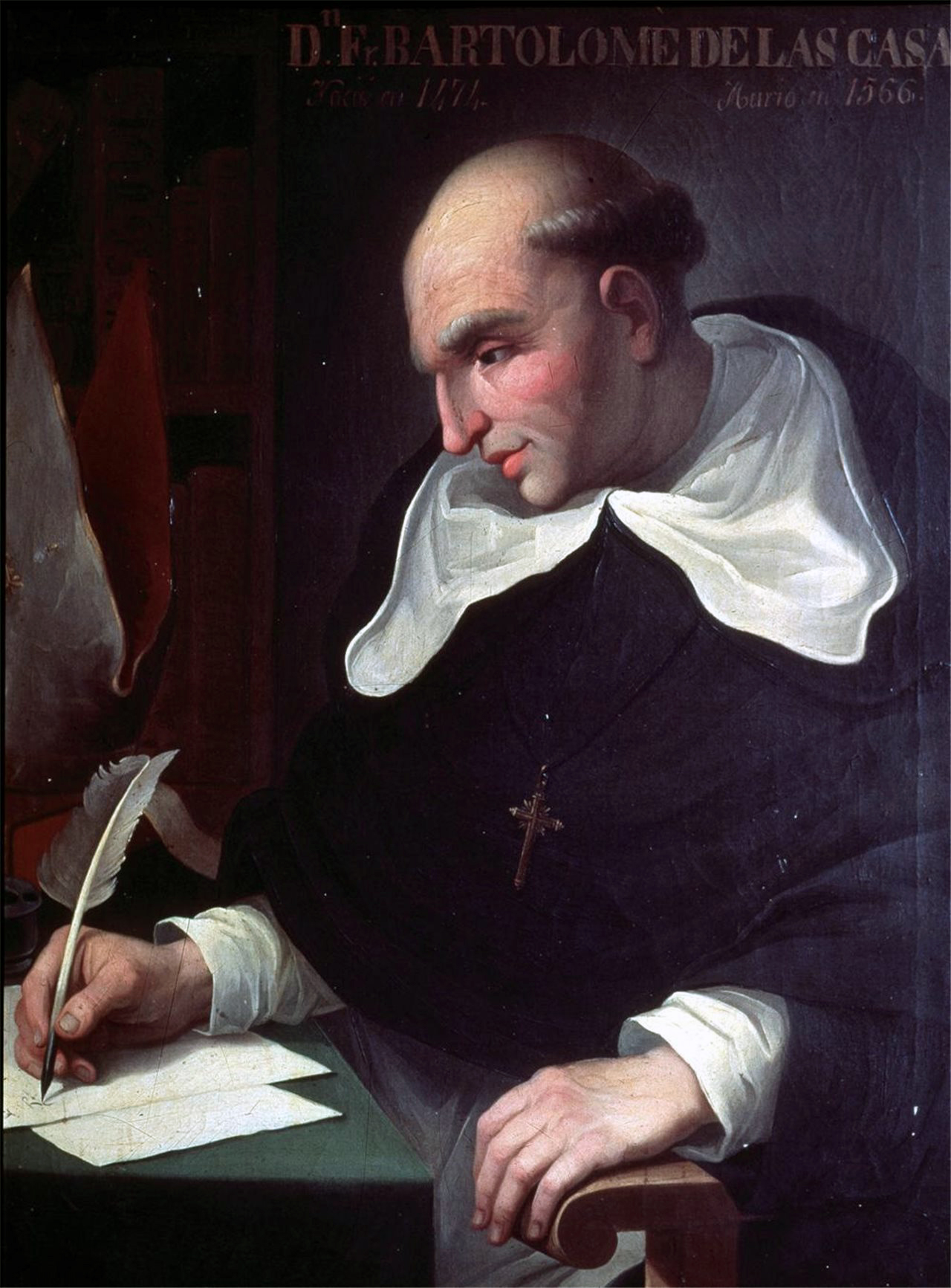
(1484-1566) Spanish conquistador who traveled with his father to [[Dan's History Web/US 1/Topic Index/Hispaniola]] in 1502 after seeing the seven Native Americans [[Dan's History Web/US 1/Topic Index/Christopher Columbus|Columbus]] brought back to Spain with him in 1493. Las Casas apparently knew Columbus and had access to his diaries, which he quoted extensively in a history he wrote of the Spanish conquest (the original diaries are lost, so Las Casas's history is the only remaining source of Columbus's thoughts). He participated in the conquest of Cuba, but over time became increasingly alarmed at the rapid destruction of the native populations of the islands. Having no real understanding of the deadliness of the diseases the Spanish brought, on a population with no natural immunities, Las Casas attributed the effects of the [[Dan's History Web/US 1/Topic Index/Columbian Exchange]] on Spanish cruelty and wrote to [[Dan's History Web/US 1/Topic Index/Ferdinand and Isabella]] to complain. He returned to Spain to plead for a change, publishing _[Memorial de Remedios para Las Indias](https://en.wikipedia.org/wiki/Bartolom%C3%A9_de_las_Casas#Memorial_de_Remedios_para_las_Indias)_ in 1516. As a result, he was given the title "Protector of the Indians" and a salary. He worked at this until 1522 when he gave up and joined a Dominican monastery. In 1542, Las Casas wrote _[A Brief Account of the Destruction of the Indies](https://gutenberg.org/ebooks/20321)_, which described the first fifty years of Spanish colonialism, and sent it to King [[Dan's History Web/US 1/Topic Index/Philip II]]. It was published in 1552, and translated by Protestant adversaries of Spain, leading to the [[Dan's History Web/US 1/Topic Index/Black Legend]].

*Illustrations by Theodor de Bry for an English translation of Las Casas's book.*